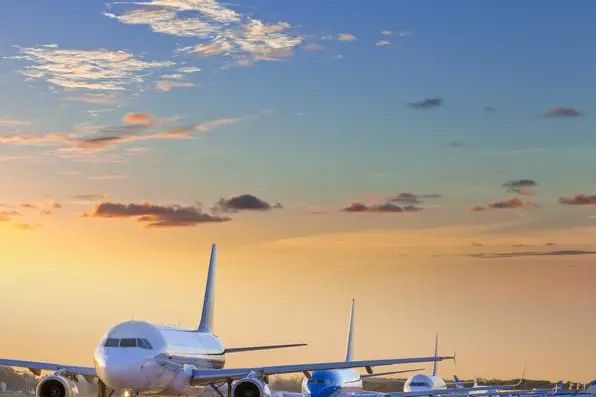PHOTO
Europe’s second COVID-19 lockdown will hit airlines in the Gulf Cooperation Council (GCC) region due to lower travel demand and bookings, the International Air Transport Association (IATA) said.
Several major European markets for Gulf carriers, including England, France and Germany, have re-introduced restrictions, shutting down businesses and implementing nationwide stay-at-home orders, in a bid to stem the resurgence of coronavirus cases.
The containment measures are likely to have knock-on effects on airlines in the Gulf, which serve as “super connectors” for international passengers travelling to and from the European markets, according to Brian Pearce, chief economist of IATA.
In a media briefing, Pearce noted that while the short-haul air travel markets are recovering from the COVID-19 slump, operators of long-haul fleets are still struggling.
Highly depressed
“The longer haul markets have been much more challenging because of the [renewed] restrictions… I know that the Gulf authorities have made substantial efforts [doing] testing and discussions with partners to get travel going again and connecting through those hubs, but Europe is one of the major markets for travel from Asia via those super connectors [in the GCC region], so that is going to be damaging,” Pearce said.
IATA’s latest figures showed that passenger demand in September remained highly depressed, although carriers were generating cash from increased cargo business. According to Pearce, airlines around the world were still burning through about $50 billion cash during the second quarter of the year.
“We have hit a wall in the industry’s recovery. A resurgence in COVID-19 outbreaks – particularly in Europe and the US – combined with government’s reliance on the blunt instrument of quarantine in the absence of globally aligned testing regimes, has halted momentum toward re-opening borders to travel,” said Alexandre de Juniac, IATA’s director general and CEO.
Travel demand
Total global demand, measured in revenue passenger kilometres (RPKs) was 72.8 percent below September 2019 levels, only slightly improved over the 75.2 percent year-to-year decline recorded in August. Global capacity was also down 63 percent compared to a year ago, and load factor fell 21.8 percentage points to 60.1 percent.
In terms of international passenger demand, September numbers plunged 88.8 percent compared to September 2019, basically unchanged from the 88.5 percent decline recorded in August, while capacity plummeted 78.9 percent, and load factor withered 38.2 percentage points to 43.5 percent.
Airlines in the Gulf and across the Middle East region posted a 90.2 percent decline in traffic, a slight improvement from a 92.3 percent demand drop in August. Capacity for carriers in the region also tumbled 78.5 percent, while load factor sank 40.9 percentage points to 34.4 percent.
IATA had said last week that carriers could not reduce costs fast enough to compensate for the decline in passenger demand.
The situation is putting at risk some 4.8 million aviation-sector jobs, as well as the 46 million people in the “broader economy whose jobs are supported by aviation,” said de Juniac.
“To avoid this economic catastrophe, governments need to align on testing as a way to open borders and enable travel without quarantine and provide further relief measures to sustain the industry through the dark winter ahead. A broader economic recovery is only possible through the connectivity provided by aviation,” he added.
(Reporting by Cleofe Maceda; editing by Seban Scaria)
Disclaimer: This article is provided for informational purposes only. The content does not provide tax, legal or investment advice or opinion regarding the suitability, value or profitability of any particular security, portfolio or investment strategy. Read our full disclaimer policy here.
© ZAWYA 2020





















